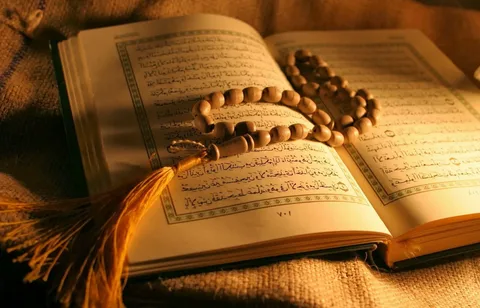Legacy is a powerful word, isn’t it? In simple terms, it refers to what we leave behind when we’re gone. In Islam, legacy takes on profound significance, intertwining both the material and the spiritual. It’s about more than just inheritance; it’s about values, teachings, and the impact we have on the world, in this article on Arabian Tongue we will explorer the meaning of legacy in islam.
The Concept of Legacy in the Quran

The Quran emphasizes the importance of leaving a positive legacy. Numerous verses discuss the inheritance and what we leave behind for our families and communities. For example, in Surah Al-Baqarah (2:180), Allah commands believers to make fair distributions of their wealth after death, ensuring a just legacy for their heirs.
Examples of legacies from the Quran:
- Prophet Ibrahim (Abraham): His unwavering faith and dedication serve as a legacy for Muslims worldwide.
- Prophet Muhammad (peace be upon him): His teachings continue to inspire millions, shaping the legacy of Islam itself.
Key Verses:
Inheritance: Surah Al-Baqarah (2:180) stresses the importance of fair distribution of wealth among heirs, ensuring justice and equality.
Values and Teachings: Surah Al-Anfal (8:28) reminds believers that their wealth and children are a test from Allah, highlighting the need to cultivate righteous values.
Hadiths on Legacy
In addition to the Quran, the Hadiths also shed light on the importance of legacy. The Prophet Muhammad (pbuh) said, “When a man dies, his deeds come to an end except for three: ongoing charity, beneficial knowledge, or a righteous child who prays for him.” This highlights the significance of creating a legacy through actions that continue to benefit others even after one’s passing.
Types of Legacy in Islam

Material Legacy
This includes wealth, property, and possessions that are passed down through inheritance. In Islam, there are clear guidelines on how to distribute wealth among heirs, ensuring fairness and justice.
Spiritual Legacy
Spiritual legacies involve the teachings, beliefs, and values that one instills in others. It’s about nurturing faith and encouraging a connection with Allah that transcends generations.
Social Legacy
This encompasses the impact one has on society. It includes efforts to promote justice, kindness, and community welfare, leaving behind a better world for future generations.
The Importance of Intention in Leaving a Legacy
In Islam, the niyyah (intention) behind actions is crucial. It shapes not only the actions themselves but also the legacy left behind. Good intentions lead to lasting impacts, as the purpose behind deeds carries significant weight in the eyes of Allah.
Impact of intentions on legacy
When individuals aim to create a positive legacy, their intentions drive them to perform meaningful actions that resonate through time.
Legacy and Family in Islam
Family plays a pivotal role in the Islamic understanding of legacy. Inheritance laws are explicitly defined in the Quran, ensuring that wealth is distributed fairly among family members.
Family values and their influence
Strong family ties and the transmission of values within families contribute significantly to a positive legacy. Parents are encouraged to instill moral principles and a strong sense of faith in their children.
Legacy of Prophets in Islam
The lives of the timeline of the prophets in islam serve as the ultimate examples of legacy. Each Prophet left behind lessons and teachings that continue to guide Muslims today.
Examples of prophetic legacies:
- Prophet Musa (Moses): His story teaches resilience in the face of adversity.
- Prophet Isa (Jesus): His emphasis on compassion and love continues to inspire countless individuals.
The Legacy of the Companions of the Prophet
The Companions of the Prophet Muhammad (pbuh) were instrumental in shaping the early Muslim community. Their dedication and sacrifices left a profound legacy that continues to inspire Muslims.
- Contributions to Islam: They spread the teachings of Islam far and wide, ensuring its survival and growth.
- Lasting impacts: Their examples encourage current and future generations to embody the values of courage, loyalty, and faith.
Common Misconceptions About Legacy
Despite its importance, several myths surround the concept of legacy:
Myths vs. realities:
- Myth: Legacy is only about money.
Reality: Legacy encompasses values, teachings, and community impact. - Myth: Only famous people leave legacies.
Reality: Everyone can create a legacy, regardless of their status.
FAQs
What is the primary source for understanding legacy in Islam?
The Quran and Hadith are the main sources that guide Muslims on the importance and implications of legacy.
How can I ensure my legacy positively impacts future generations?
By living with intention, performing good deeds, and instilling strong values in others.
Is legacy only about financial wealth?
No, legacy includes spiritual, social, and educational contributions as well.
What role does charity play in leaving a legacy?
Charity is a powerful means to create a lasting impact and enrich one’s legacy.
Can anyone leave a legacy?
Absolutely! Everyone has the potential to create a meaningful legacy through their actions and contributions.
Conclusion
In summary, the meaning of legacy in Islam is rich and multifaceted. It goes beyond mere inheritance; it encompasses spiritual, material, and social dimensions that influence future generations. By understanding and embracing this concept, Muslims can strive to leave behind a legacy that aligns with their values and beliefs.


